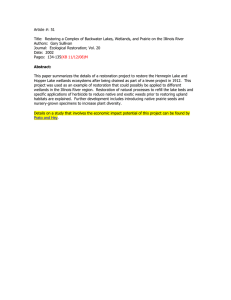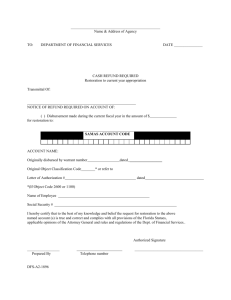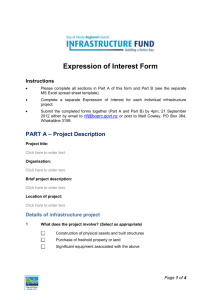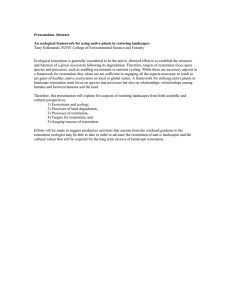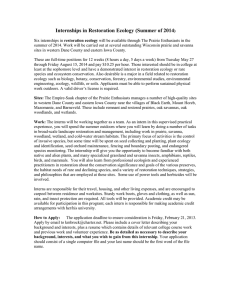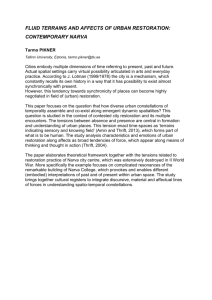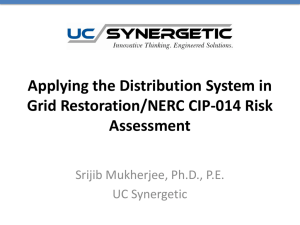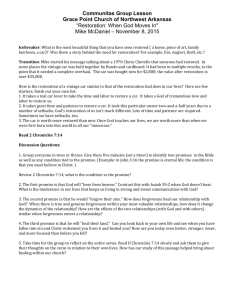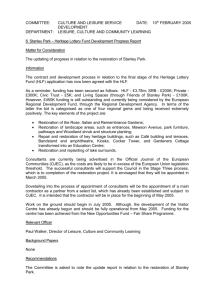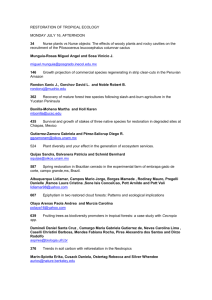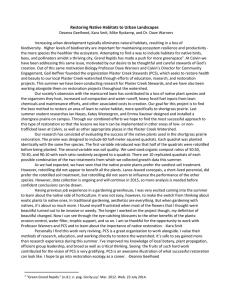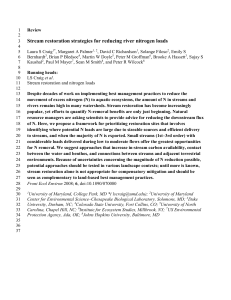Chapter13: Restoration Ecology
advertisement
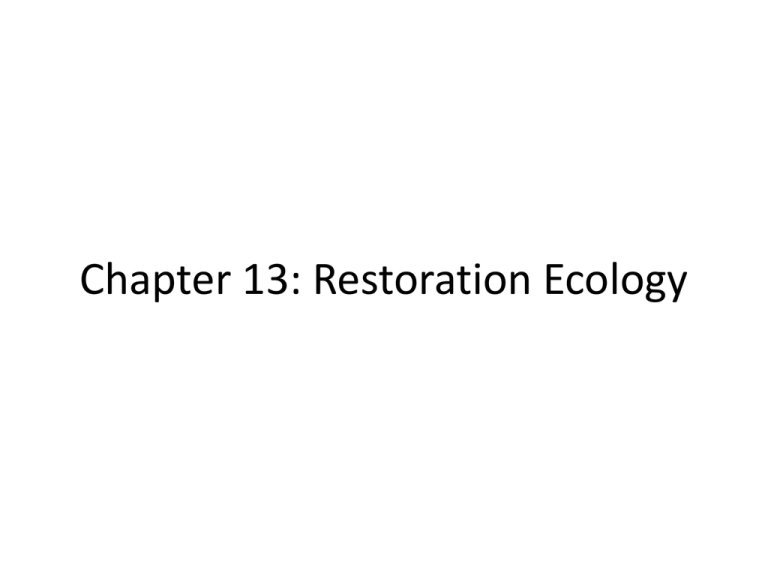
Chapter 13: Restoration Ecology 13.1 Helping Nature Heal • Rule #1: Stop the Abuse • Many Systems Heal on their Own 13.1 Helping Nature Heal • Restoration projects range from modest to ambitious • Restoration ecologists tend to be idealistic but pragmatic • Restoration projects have common elements • Early conservationists showed the promise of restoration 13.2 Nature Can Be Remarkably Resilient • Protection is the first step in restoration • Native species often need help to become reestablished – May be locally extinct – May not be able to cross intervening spaces – May need help against competitors 13.3 Restoring Forests Has Many Benefits • Tree planting can improve our quality of life – Arbor Day, 1872 – Exported to Japan, 1883 – Now Global • What Can You Do? Ecological Restoration in Your Own Neighborhood • Fire is essential for savannas – Hard to Convince Homeowners 13.4 Restoring Prairies • Fire is also crucial for prairie restoration • Huge areas of shortgrass prairie are being preserved • Bison help maintain prairies 13.5 Restoring Wetlands And Streams • • • • • • • Reinstating water supplies helps wetlands heal The Everglades are being replumbed The Chesapeake Bay is being rehabilitated Wetland mitigation can replace damaged areas Constructed wetlands can filter water Many streams need rebuilding Severely degraded or polluted sites can be repaired or reconstructed
